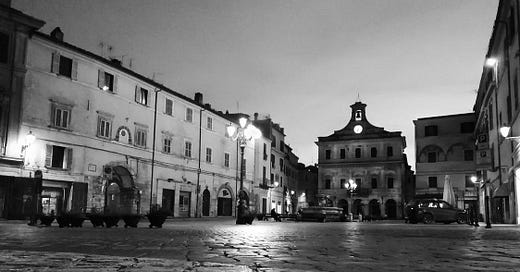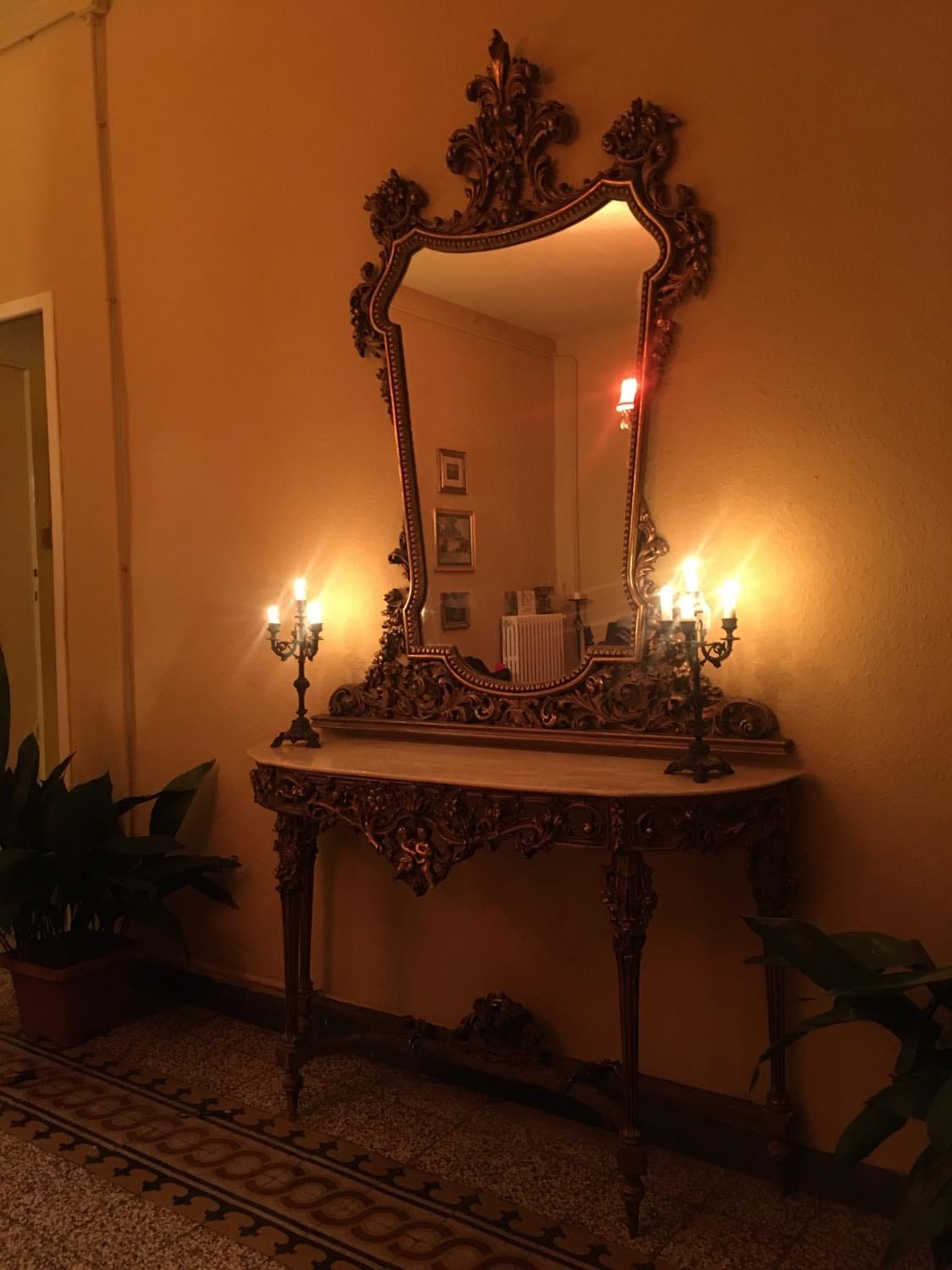No one loves Italy like I love Italy. I celebrate her many beauties and turn a fond, indulgent eye on her eccentricities, realizing that Italy has her own unique way of doing business, even if it doesn’t make any sense. At all.
For starters, most leases in Italy are for five year with an option to reup for another two years. That’s five to seven years of no rent increase. Where I lived before moving to Italy was a moldy apartment behind a mall in Houston, Texas, which fed into a highly coveted school system. Within five years, my rent went from $750.00 to $1,600.00, with an additional $30.00 a month for the cats. The air conditioner leaked black water into the bathtub. If I so much as tacked a picture to the wall, it came out of my security deposit.
Not so in Italy. Once you move in, you’re free to do whatever you want to the place. Want to paint a wall? Sure! Pull up that old tile and lay down hardwoods? Knock yourself out. This applies to older apartments, by the way, not new ones. Unlike Yours Truly, Italians are too sensible to make expensive renovations to a rental property. Five years ago, probably because we’re dumber than a bag of wet hair, my boyfriend and I took this apartment in Civita Castellana and turned it into a palace.
But here’s where property law gets really weird. A tenant can stop paying rent for any reason and “occupy” a property for years at a stretch. The Italian court system is hideously backlogged. It can be as many as ten years before a property owner’s case is tried. If a tenant is on the landlord’s property, even if that tenant is in serious arrears on his rent, the landlord is powerless to do anything except take him to court …. Unless the landlord has furniture inside the house.


In Italy, if a landlord has furniture inside his rental property, he can serve the tenant with an eviction notice. Yes, it might take a while to enforce, but in theory, the tenant must eventually vacate the premises. So, too, if the landlord can make a case that an immediate family member needs the property. If Daddy’s darling wants to move in with her new husband, you could be on a respirator and it wouldn’t matter. You’re out.
Here’s a true story.
Calcata is a fairytale village in Italy perched on top of a fairytale rock in the middle of a fairytale valley. About sixty people, mostly artists, live there year-round. In addition to medieval palazzi with apartments in them, there are caves, some of which have been turned into artists’ studios, others that serve as makeshift infirmaries for wounded birds. It is a strange, surreal place, one I lived in for two utterly bizarre years. Even the locals refer to it as paese dei fricchettoni, or village of freaks, and to tell you the truth, they’re not wrong.

An Italian named Fabio, an avowed communist, owned an apartment in Calcata. He rented the apartment to a man we’ll call Marco, who may have suffered from dwarfism. Marco and his wife, who were constantly fighting, showed up on the weekend and sold sandwiches out of the apartment. They never paid rent.
Fabio grew increasingly angry and desperate. No one in Calcata has any money, and he depended on that rental for income. But as long as Marco was occupying the property, Fabio’s hands were tied. He had no furniture there, and no relative who wanted to move into it. Meanwhile, Marco and his wife came and went with impunity, always carefully locking up the apartment. Marco knew the system and was entirely comfortable occupying its many loopholes. Fabio chafed against his communist sensibilities and his outrage that somebody was taking advantage of him.
After three years of this, Fabio devised a plan. He parked himself outside the apartment and taunted Marco about his height, his wife, the size of his penis. Marco hotly responded from a window. “Come outside and tell me that to my face, you worthless bum!” Fabio shouted at him. “I dare you.”
The door slammed open. Hands balled into fists, Marco marched outside, ready to do battle. He swung at Fabio, but Fabio swung first, landing a solid punch on Marco’s face. Then he ran inside the apartment, locked the door, and “repossessed” his property, chortling with glee.
This story is not a one-off. It happens all the time. There are property laws on the books that actually go back to the days of Ancient Rome. Italians are brilliant at art, food, engineering, la dolce vita. They are not good at bureaucracy.
My boyfriend and I are in the process of doing a rent-to-buy in Orte, which fills both of us with trepidation and dread. If we end up simply renting, which is a distinct possibility, we will pay first month, last month, and then the agency fee, which is equivalent to one month’s rent. Plus a 22% tax. No one checks your FICO score because Italy doesn’t have FICO. Occasionally, a landlord will ask for references, but that’s a highly corruptible means of determining someone’s creditworthiness. Mostly, people just wing it.
With all due empathy to American property owners, I find it refreshing to know there are actual laws that protect renters and owners. Where I come from, the law heavily favors the owner. Rent is usually paid sometime during the month here. Late fees are rarely asked for or collected. During a particularly lean period of our lives, we were substantially behind in our rent and we never came home to find a sheriff’s notice taped to the door or our furniture out in the piazza. When we had the money, we paid our back rent in cash, stacked on top of our landlady’s dining room table. She opened the window and a sudden breeze lifted those bills, which flew against me like migratory birds.
Rent is expensive in the major cities. But if you are willing to live in one of Italy’s eight billion villages, you can land a generously sized apartment for about 300 euros on up. Ours has a terrace that overlooks a thousand-year-old church.
I’m going to miss it.











Why are you moving?